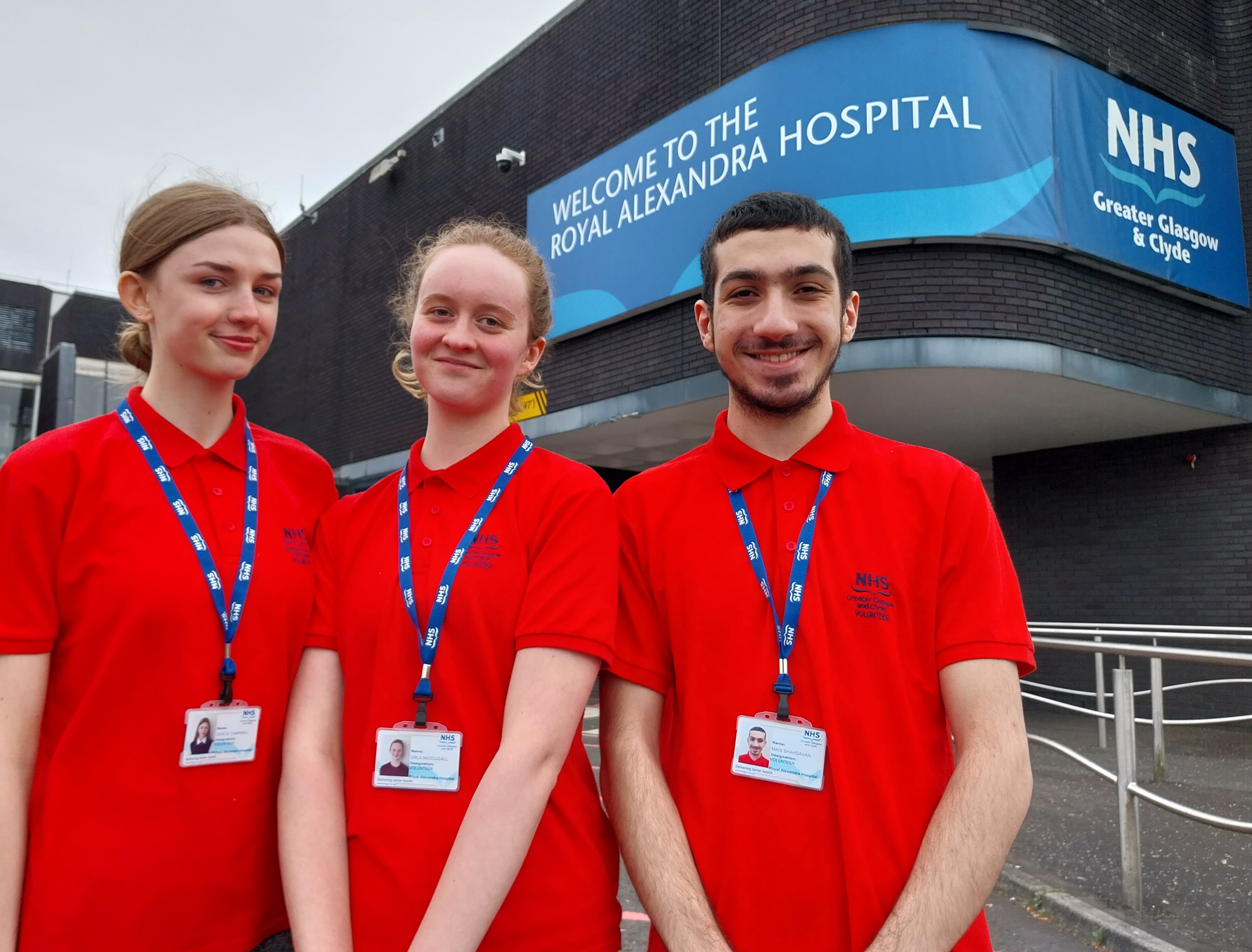Previous
Anaesthetist
To become a general practitioner (GP), you'll need a Bachelor of Medicine and Bachelor of Surgery (MBChB or MBBS) degree. After medical school, you’ll also have 5 years of postgraduate medical training. Once completed, you must apply to join the General Medical Council’s GP Register and the National Performers’ list. You’ll then be able to work as a GP.
Most general practitioners (GPs) provide medical care within local communities. They assess, diagnose, and treat common medical conditions across all age groups, from children and young people to older people. They also refer people to hospitals or other healthcare services when urgent or specialist treatment is needed.
An essential part of a GP’s role is preventative medicine, which focuses on improving health, preventing illness and disease, and reducing health inequalities. This can include physical and mental health checks, regular screenings, and routine vaccinations. GPs also advise people about healthy living, exercise, eating well, drinking less alcohol, and stopping smoking or vaping.
Some GPs work in hospital emergency departments or minor injuries units.

To get into medical school, useful school subjects include:
Speak to your guidance teacher or careers adviser about subjects offered at your school. You should also contact medical schools to learn more about their entry requirements.
Reach is a national project that supports senior school pupils from non-traditional backgrounds who want to study medicine. Universities offer on-campus events to help you gain insight into their undergraduate degree programme. You can also access the following:

You may find it helpful to get some healthcare experience by doing a work placement or volunteering. You’ll get training, increase your knowledge, and learn new skills. This could help you when applying to medical school or for medical training in NHSScotland.
There are 5 universities where you can study medicine in Scotland:
If you’re at school, thinking about changing careers or returning to education as an adult learner, there are many different routes into medical school.
Whichever route you choose, you’ll need to sit the University Clinical Aptitude Test (UCAT). Medical schools use this test and UCAS applications, academic qualifications, and interviews to select applicants for their degree programmes.
Find out more about the UCAT computer-based admissions test.
To become a GP, you’ll need to complete a degree in medicine (MBChB or MBBS) at SCQF level 10. Undergraduate degree programmes take 4 to 6 years to complete, studying full-time.
You should contact each medical school to find out about specific entry requirements.
At medical school, you’ll have lectures, tutorials, and simulation-based learning where you’ll do the following:
You’ll also have clinical placements to help you get experience in a wide range of clinical areas, such as:
Search for undergraduate medical degree programmes on My World of Work.
Are you a school leaver? Maybe you're an adult learner who doesn't have the qualifications needed for medical school. Don't worry, access routes to medical education are available!
There are also programmes for graduates with a biological science or healthcare-related honours degree at SCQF level 10.
Widening participation supports adult learners who want to go to university. If you’re an adult with few or no qualifications, you could get into higher education through the Scottish Wider Access Programme (SWAP).
Many universities also provide access programmes to help you get the entry qualifications you need to study medicine.
If you already have an honours degree at SCQF level 10, you can choose this route to study medicine. Some universities offer an accelerated 4-year medical graduate entry programme. To apply, you must meet the academic and non-academic requirements set out by the universities.
You should contact each medical school to find out about their graduate entry programme requirements.
When you graduate from medical school, you’ll need to apply to the General Medical Council (GMC) for provisional registration with a licence to practise. This will allow you to take the next step in your medical training and join a foundation programme.
Find out more about provisional registration.
A foundation programme is the first step in your postgraduate training after you graduate from medical school. You’ll also learn the skills you’ll need to deliver safe and effective person-centred care.
The Scottish Foundation School’s 2-year work-based training programme offers experience in a range of specialties and geographic locations. When you have a place on a foundation programme, you must apply for provisional registration with the GMC.
In your first year as a foundation doctor in training, you’ll develop the knowledge, skills, and competencies you gained in medical school. When you successfully complete your F1 year, you’ll be issued a Foundation Year 1 Certificate of Completion document. The Scottish Foundation School will send a certificate of completion to the GMC so you can apply for full registration. You’ll also progress to the second year of the foundation programme.
During your F2 year, you’ll continue to develop your clinical and professional knowledge. This will prepare you for the next stage of your medical training.
At the end of your F2 year, you’ll be issued a Foundation Programme Certificate of Completion (FPCC), ready to start specialty training.
Find out more about foundation training in Scotland.
General practice specialty training (GPST) is a 3-year programme you must complete to become a qualified GP.
As a GP registrar, your training programme will include at least 18 months in an approved GP practice. You’ll see patients throughout the day, including face-to-face, video, and telephone consultations. As you become more experienced, you’ll also:
You’ll also have the opportunity for clinical placements in hospital settings or in an integrated training post. Hospital attachments during GPST can include:
You must update your learning and progress in your Trainee Portfolio throughout your training.
All doctors in training receive an annual review towards the end of their training year. The Annual Review of Competence Progression (ARCP) is used to:
A panel of senior doctors and medical educators decides ARCP outcomes. They will determine if you’re ready to progress to the next step in your training.
Find out more about hospital specialty training in Scotland.
You’ll need to achieve the MRCGP postgraduate qualification to confirm that you’ve satisfactorily completed specialty training for general practice.
There are 3 parts to the MRCGP:
Find out more about the MRCGP assessments.
You’ll be issued a Certificate of Completion of Training (CCT) when you complete GP specialty training. You can then join the GMC GP Register and the Performers’ List of an NHSScotland Health Board.
Learn more about the GMC GP Register.
You can view GP vacancies for all our health boads on the GP Jobs website.
As a GP, you’ll provide whole-person medical care for people of all ages within the local community. This could include patients with minor injuries, chronic illnesses, allergies, high blood pressure, or depression and anxiety. You’ll assess their physical and mental health needs with empathy, compassion, and expertise.
You’ll see patients in many different settings, including the GP practice, care homes, hospitals, or their own homes. You’ll also have telephone and video consultations.
You may need to prescribe medication or request investigations. You’ll also refer patients to hospital or other healthcare professionals for urgent care or specialist treatment. You’ll also give vaccinations and give advice to help people live healthier lives.
In this role, you’ll work in and often lead multidisciplinary teams, which include nurses, pharmacists, and allied health professionals.
Your main tasks could include:
General practitioners need these skills:
You could work with:
You could work in:
As a GP, you’re expected to engage in continuous professional development (CPD) activities to keep your knowledge and skills up to date.
The Royal College of General Practitioners (RCGP) offers seminars, webinars, and surgical skills courses to support your professional development.
Find out more about the RCGP's learning opportunities and resources.
All doctors are legally required to revalidate to show that their knowledge and skills are up to date and that they are fit to practise. You’ll need to revalidate every 5 years to maintain your registration with the GMC.
Learn more about the revalidation process for doctors in the UK.
There are lots of enhanced career development opportunities for GPs, such as:
You could also support the professional development of other doctors as a GP appraiser.
You can join the following organisations as a medical student or GMC-registered doctor:
You’ll need a licence to practise in the UK to work as a GP. You must also be registered as a GP with the General Medical Council and the appropriate National Performers’ List service.

What’s it really like to work in the NHS? Discover the pathways that people like you took to a career in health.
View case studies
Are you interested in a career in the NHS? Check out our career help for young people!
Find out more